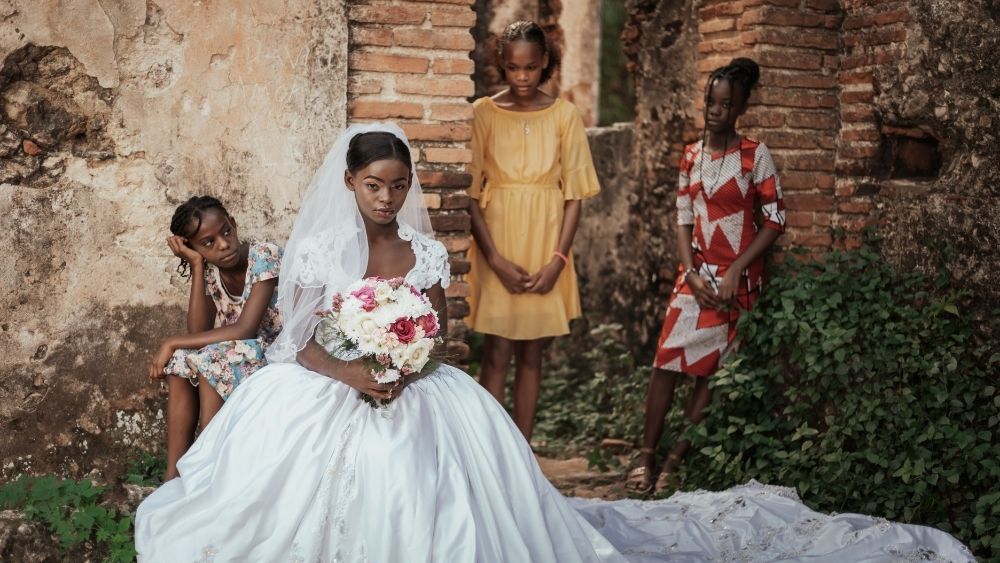While Muslim clerics refuse to suspend such unions, activists emphasize the urgent need for investment in children’s education, particularly for girls.
The region of Maiduguri, already plagued by frequent attacks from armed groups, faces a complex social crisis exacerbated by child marriage. Women’s and children’s rights advocates are increasingly concerned about the repercussions of these mass weddings, which perpetuate cycles of poverty, limit girls’ potential, and reinforce harmful social norms.

As the Nigerian government progresses with its plans, civil society is intensifying its calls for more effective measures to protect girls’ rights and promote their education. It is imperative to implement comprehensive policies and programs that address the root causes of child marriage and provide equal educational opportunities for all children, regardless of gender.
Nigeria’s Minister of Women Affairs, Uju Kennedy-Ohanenye, is at the forefront of the campaign to stop the mass wedding planned for Friday (17). In a statement to Reuters, Kennedy-Ohanenye revealed that she filed a court injunction to halt the marriages, arguing that such unions violate Nigeria’s Child Rights Act and the Violence Against Persons Prohibition Act, which prohibits forced marriages for women and girls.
“This marriage affects the rights of girls and women, who constitute my constituency, and I have taken steps to put an end to it,” Kennedy-Ohanenye stated in an interview. The minister emphasized the importance of protecting the rights of Nigerian girls and women, highlighting that many of the planned brides are underage, which has drawn intense criticism from human rights defenders.
The revelation of the mass wedding came to light when Abdulmalik Sarkindaj, a lecturer in the Niger Assembly, a predominantly Muslim state in Nigeria, announced his plans to sponsor the ceremony and arrange for the payment of the girls’ dowries. This disclosure triggered a global outcry, highlighting the urgent need to address child marriage and protect girls’ rights worldwide.
The official revealed that the brides’ parents were victims of kidnapping gangs that have terrorized villages and towns in his state, located in the north of the country. While some Muslim clerics defended the marriage as a charitable gesture for orphans, critics argued that it violated Nigeria’s commitment to protecting children and women’s rights.
Subsequently, Sarkindaj withdrew his offer to host the ceremony, leaving it uncertain whether it would proceed with another sponsor, as local Muslim clerics vowed to challenge the minister. Although the Minister of Women received assurances from governors that the wedding would be canceled, she opted to seek an injunction as a precaution.
“What I’m fighting against is illegality. It is not the tradition or religion that I’m opposing. It’s to ensure that this does not happen,” she explained. During her meetings with leaders, measures such as enrolling some girls in school and opening bank accounts for others were discussed.
“The institution of marriage does not grant power and does not improve anyone’s life. On the contrary, it worsens matters if there are no resources to sustain the family,” the minister concluded.
Despite the existence of Nigeria’s Child Rights Act, which sets the minimum age for marriage at 18, younger girls continue to be routinely married off in the northern states of the country. Surprisingly, more than half of women aged 20 to 24 were married before turning 18.
Nerida Nthamburi, from GirlsNotBride, a nonprofit organization dedicated to combating child marriage, emphasizes that laws alone are not enough. She points out that cultural norms continue to pressure women into early marriage, highlighting the need to address these deeply ingrained norms to effectively combat child marriage. Real change requires not only stricter laws but also a cultural transformation that promotes girls’ autonomy and rights.
Nerida Nthamburi also observed that in some northern states, parents marry off their daughters when they menstruate or reach puberty, underscoring the urgency for the government to engage traditional and community leaders to tackle this entrenched practice.
Moreover, high poverty rates further exacerbate the situation, leading more families to resort to marrying off girls as a way to pay off debts or secure an income source. Therefore, beyond legal and cultural changes, it is crucial to address the underlying issues of poverty and limited access to economic resources to effectively combat child marriage in Nigeria.
Nthamburi, the activist, called on the government to invest in programs that encourage girls to stay in school, making them less vulnerable to early marriage. She emphasized that education is the best antidote to forced marriage.
“If families are economically empowered, we will find that they are less likely to consider selling their daughters and more likely to have the resources to at least keep their children in school,” she explained. Investing in girls’ education not only expands their future opportunities but also helps break the cycle of poverty and inequality that fuels child marriage. Therefore, measures to strengthen girls’ education and women’s economic empowerment are essential to effectively combat this harmful practice.
Ultimately, the fight against child marriage in Nigeria cannot rely solely on legal changes but requires a multifaceted approach that addresses the socioeconomic and cultural roots of the problem. The call for investments in educational and economic programs, as highlighted by Nthamburi, is crucial to empower girls and their families, thereby reducing their vulnerability to early marriage.
Furthermore, it is imperative for the government to work closely with community and traditional leaders to promote changes in mindsets and norms within communities where child marriage is prevalent. Only through coordinated and sustained efforts aimed at empowering girls, educating communities, and tackling the deep-rooted causes of poverty can progress be made toward eradicating child marriage and ensuring a brighter future for Nigeria’s young girls.

